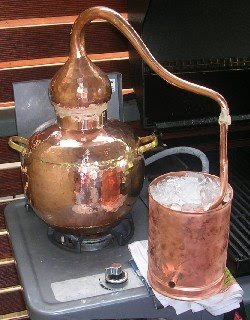The Alcohol and Tobacco Tax and Trade Bureau states that no one can produce any spirits for beverage use without paying any taxes and with no prior paperwork approval to operate a distilled spirits plant.
Dawsonville, Georgia
Dawsonville Moonshine Distillery is located in the same place as the Georgia Racing Hall of Fame. It is also situated within Dawsonville’s City Hall. However, the local government is not taking steps to halt its operation. It even sold out the first batch of liquor it produced for the Mountain Moonshine Festival. The distillery is currently working on its third corn whiskey batch and business is still flowing.
How is this possible?
Cheryl Wood is the owner of Dawsonville Moonshine Distillery. She explains that hard work and legal requirements were necessary to make her dreams a reality. It took her months to plan and acquire permits to make her moonshine dreams possible. She also quit her job in the phone company she was working for and decided to go full time distilling. Plus, she borrowed tons of money. Her efforts are now paying off.
It also helped that Wood comes from a long line of moonshiners. Literally, moonshine runs in her blood. Her grandfather was a popular moonshiner named Simmie Free. She also got help from “backwoods distiller” Dwight Bearden and “still hand” Bob Suchke. All three brought in their years of experience growing up with moonshine.
The moonshine trade helped feed their families back when they were children. Bearden is a fourth-generation moonshiner.Currently, the business is utilizing a 250-gallon moonshine copper still, two 415-gallon stainless steel mash and another 1,050 gallon steel mash. There are plans to expand and add in more equipment and help.



